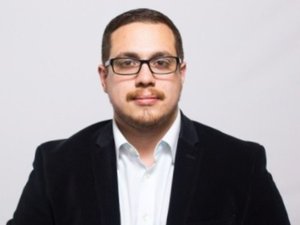Two weeks ago, the technology industry watched closely as media outlets like Bloomberg and Axios released a draft executive order on H-1B visa reform. The draft—a final form of which we have not seen or heard about—is nebulous, simply saying business would have to try and hire an American for the position first, and if a company chooses to recruit foreign workers, "priority would be given to the most highly paid." Pretty vague, right?
For the technology industry, H-1B visa reform has been at the top of the political agenda. The visa program offers a three-year visa that can be extended up to six years for high-skilled workers. Currently, the program prefers those with master's degrees and are filling in jobs with higher salaries. A visa application must be sponsored by an American company, and applicants go through a lottery system for approval. Annually, only 65,000 H-1B visas are given, and an additional 20,000 are reserved for applicants with master's degrees. Competition is fierce among tech companies to secure visas for employees and many supporters of the visa program have advocated for raising the annual cap.
But, although the program favors high-skilled workers with higher salaries, some technology companies take advantage of the visas to bring in employees who will work for a cheaper salary, and some argue that the visa program propagates the idea of taking jobs away from the American people. Hence why it's a concern for the Trump administration and its doctrine of "America First."
Now, entrepreneurs worry about what reform could look like coming from the Trump administration and a Republican-led Congress. Ximena Hartsock, founder and CEO of digital advocacy platform Phone2Action, told DC Inno that the key to any possible reform is having a conversation in the first place.
"Education to founders is the number one step for startups to take the risk to navigate go through the H-1B process," Hartsock said about a lack of resources to help companies navigate the H-1B process. "Startups have to do everything better, faster and with fewer resources."
Hartsock immigrated to the U.S. from Chile with an H-1B visa, and she's had a number of employees who have gone through the process of trying to get one. So she knows first-hand that the process as it stands doesn't exactly make it easy for just anyone to work a high-skilled position in the U.S., creating room for other countries with more streamlined systems to step in and attract that top talent.
Phone2Action seriously considered opening a Canadian office when one of its employees was rejected initially for an H-1B visa.
"Vancouver is only (a couple of hours) away from Silicon Valley. We explored the opportunity to open an office there for our staffer," Hartsock said. "She's wonderful, and we wanted to keep her. It's a very streamline approach over there."
Vikrum Aiyer, former chief of staff of the U.S. Patent & Trademark Office and former White House senior policy adviser for innovation, said investing in a system to bring in top tech talent from around the world allows U.S. companies to build up their operations and make them more attractive to investors—which is why the Obama administration was so invested in bringing in a "startup visa" program. But under President Trump's "America First"-driven agenda, the future of this program is up in the air.
"When President Trump talks about putting America first, it also means not putting any economic talent on the table, or leaving it on the table," Aiyer said.
Michael Hayes, senior manager of government affairs at the Consumer Technology Association, told DC Inno that he thinks of H-1B reform like a startup thinks about innovation and disruption. Sure, the United States has a system in place to attract entrepreneurs and innovation to the country; however, if the country doesn't work to constantly improve and revamp, another country will swoop in and disrupt.
"If you are a company and you are not constantly innovating, someone scrappier is going to come along and they're going to disrupt your business model," Hayes said. "If we're not careful, that happens with our immigration system."
On the latest episode of The Beat podcast, DC Inno's weekly interview podcast, Hartsock, Aiyer and Hayes spoke more with the team about these issues.
Subscribe to The Beat podcast on iTunes, Soundcloud and wherever else you listen to podcasts.
Photographer: Andrew Harrer/Bloomberg




